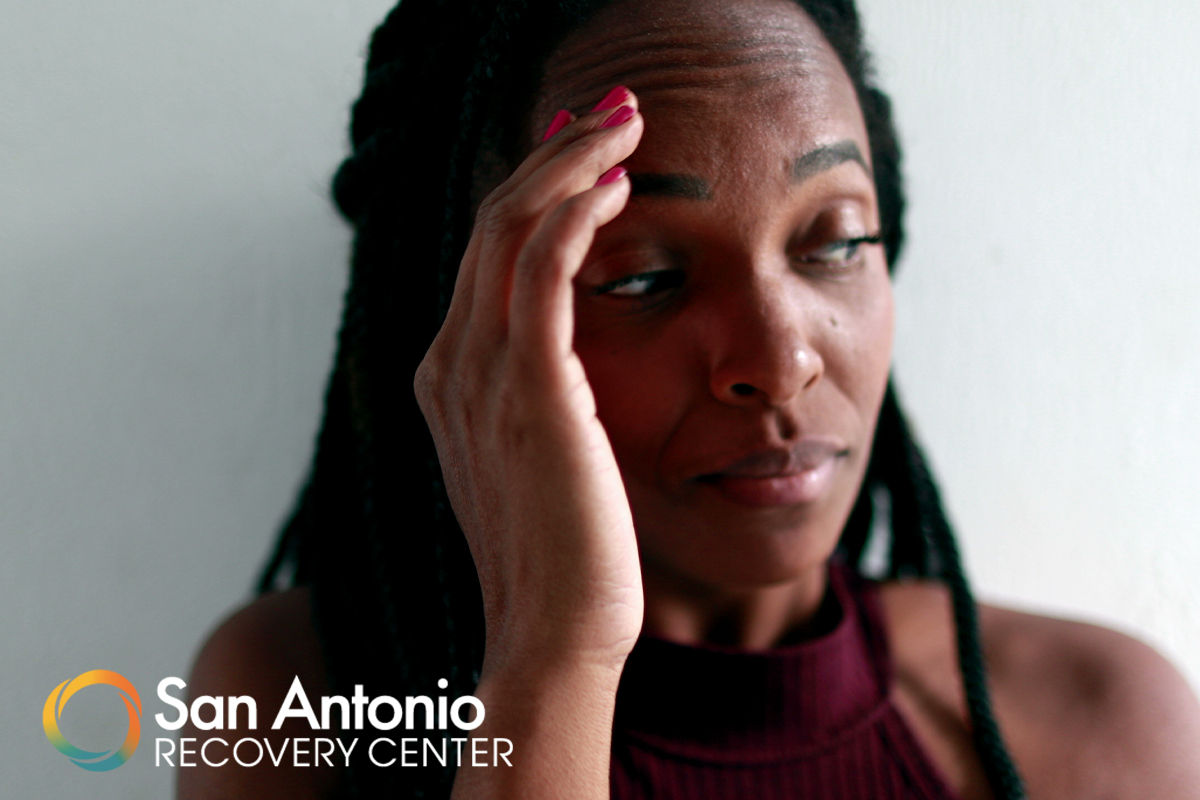
Your partner has lived with anxiety for years. They’ve fought it, at times terrified and overwhelmed. Recently, they went to their doctor for help and received a new prescription – a benzodiazepine named Klonopin. It made a huge difference, giving them control over their life. But as time has gone on, they’ve started experiencing what they suspect are side effects. They’ve gained weight, are tired even when they get a good night’s sleep, and can’t seem to focus.
Is this normal?
The short answer is, yes, benzodiazepine use can have significant side effects, and many have experienced them. Researchers with Texas Tech University suggest that benzodiazepine use could sharply rise in the future, after falling during the COVID pandemic. At San Antonio Recovery Center we’ve seen these side effects firsthand, and we work with our clients to navigate them.
The first step toward helping your loved one is understanding this substance and the impact it can have. So today, we’re going to talk about benzodiazepine side effects, and what you need to know.
Benzodiazepines, often referred to as “benzos”, are a class of legal medications commonly used to treat anxiety disorders, though they can be prescribed for other conditions such as insomnia, seizures, or as supplemental treatment for depression. They commonly go by brand names such as Xanax, Valium, or Klonopin.
These work by altering the levels of chemicals in the brain, primarily gamma-aminobutyric acid (GABA). This leads to feelings of sleepiness and relaxation, with effects similar to alcohol for many people.
While there can be a legitimate medical need for benzos, taking them against medical advice or recreationally can lead to the development of a substance use disorder.

Benzodiazepines are used to treat a variety of conditions, and come with an equally varied number of effects. These depend on the specific type of medication, as well as the dosage, the delivery methods, and whether they’re taken under medical supervision. These range from short-term, minor effects, to much more disruptive long-term impacts.
In the short term, benzos act by increasing the levels of GABA in the brain. This reduces brain activity, leading to feelings of relaxation or sleepiness. In the case of anxiety, this can be useful, returning your partner to a baseline level. However, as with any medication, there is always a risk of side effects – and this risk often increases when taken without a medical prescription.
Confusion, drowsiness, and dizziness are common. Your partner should avoid strenuous exercise or driving until they’re certain what effect benzos will have on them. Other symptoms include slurred speech, difficulty thinking, fatigue, and a sense of “brain fog” or memory loss. Critically, it’s important to avoid drinking alcohol with benzos. Their effects can fuel one another, increasing the risk of overdose.
In the long term, many negative symptoms of benzodiazepines can worsen. Cognitive decline, persistent trouble focusing, and irritability can set in. While initially used to treat anxiety, this can in fact worsen the underlying condition, causing anxieties to deepen.
Further, as the brain adjusts to the increased levels of GABA, there is a risk that tolerance can build. This means your partner will require a higher dose to feel the same calming effects. Over time, the brain can become so accustomed to benzos that it can’t function properly without them. This is known as dependence, and is why doctors carefully taper dosages down if ending a prescription of benzodiazepines.
Especially when taken outside of medical supervision, benzodiazepine has the potential for misuse. While no substance use disorder looks exactly the same for every person, there are a variety of symptoms that can occur.
Below, we address common signs that your loved one may be living with a benzodiazepine addiction. Importantly, these signals do not necessarily mean your partner has a substance use disorder. However, they are cause for concern, and are always important to address.
Benzos have a similar effect to alcohol for many individuals. In the short term, this can mean risky decision making and impaired judgment. They may seem lethargic, unwilling or unable to focus or have energy to get up. As a substance use disorder begins to develop, social isolation can set in, as well lying or hiding benzodiazepine use.
Physically, short-term symptoms are typically minor. Headaches, drowsiness, and lower blood pressure. But in the long-term, these effects can range more serious. In particular, extensive or unprescribed benzodiazepine use can damage your partner’s organs or brain. Watch for unexplained changes in weight, unsteadiness, or tremors.
Psychological symptoms are often the most profound. Mood swings are common, and your partner might quickly move between laughing one moment and being irritated and annoyed the next. While often used to treat anxiety, benzos can in fact worsen these disorders with long-term use. Slowed thinking and overall cognitive decline may become permanent, as well as significant changes to your partner’s personality. Substance use disorders often contribute to other disorders, such as depression.

When a loved one develops a substance use disorder, especially from prescription medicine, it doesn’t seem fair. The medicine was supposed to help, and instead it has derailed their life. When your partner tries to stop, their anxiety comes roaring back, and they feel trapped. It can leave your family feeling betrayed, helpless, and alone.
But know that help is available. If your partner has been unable to stop, it may be time to consider rehab for benzodiazepine addiction. There, experts can give them the tools and support they need to reclaim their life.
We don’t believe recovery ends with rehab. That’s why we make sure we’re here for you every step of the way. San Antonio Recovery Center has the largest alumni community in the region, because we make sure to stand by your side however long your journey takes. We provide the skills, knowledge, and support you need to live a healthy and fulfilled life free of substance use. Connect with us today at 210-361-5711 or through our website.
Strength. Acceptance. Recovery. Community.
Q: Do benzodiazepines cause depression?
A: Benzodiazepines are not known to directly cause depression, but they can worsen its symptoms. Especially when benzodiazepine use turns into a substance use disorder, this can seriously contribute to declining mental health and increased levels of depression.
contact us now!
